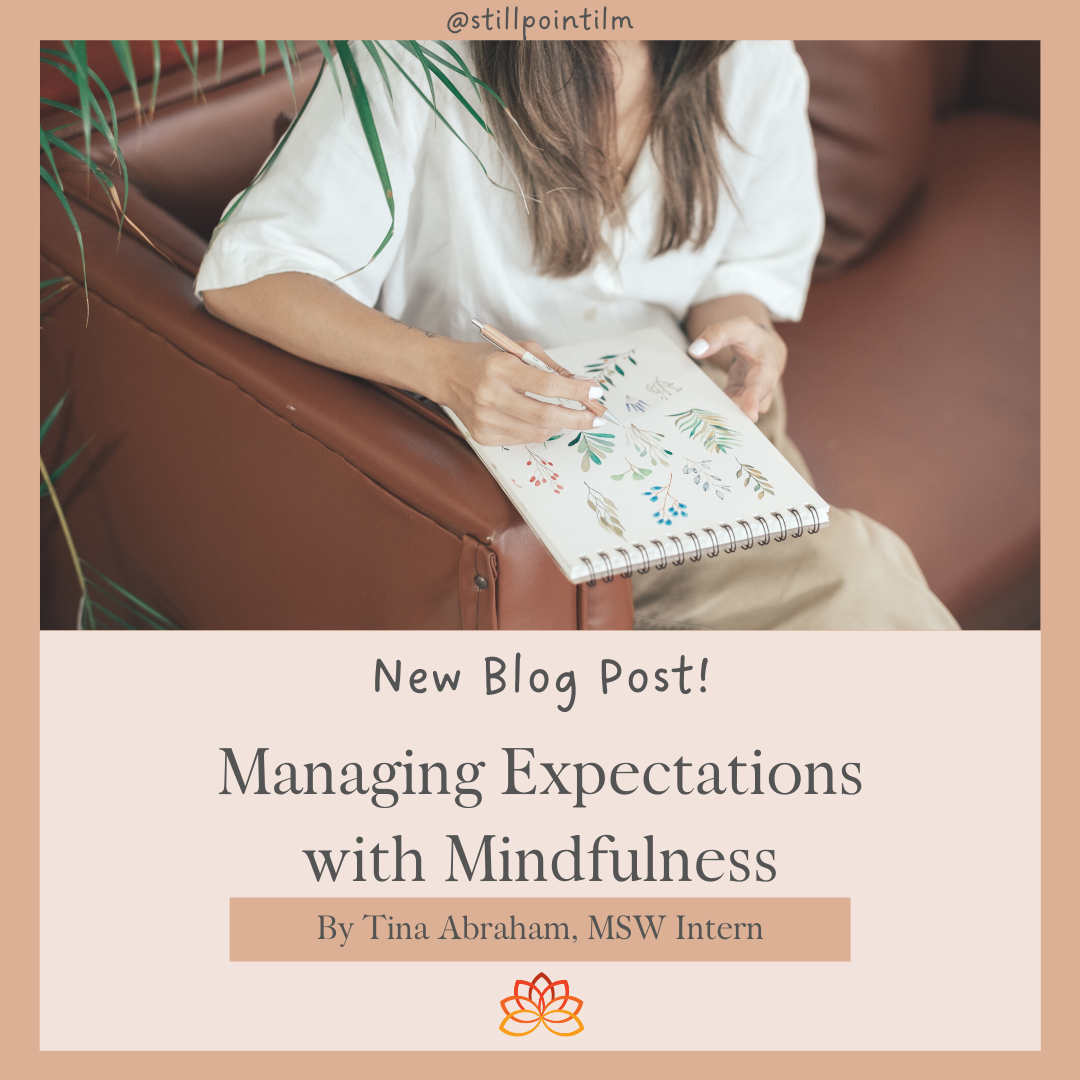Managing Expectations with Mindfulness
by Tina Abraham, MSW Intern
Every day, at work, at home, we deal with expectations. Our own expectations, and those of the people around us. Expectations are beliefs we have about something as it will be in the future: Sometimes, expectations are based on accurate information and negotiated agreements. Often, they’re not, and sometimes things change.
What happens when expectations are not met? People become attached to their expectations. They can be very disappointed when their expectations are not met.
Unmet expectations can lead to disappointment, anger, and other disruptive feelings. If you are furious, at best your ability to think clearly will be impaired. At worst, you may say something you’ll later regret and lose self-control.
How can mindfulness help? Mindfulness enables choice, the opportunity to act instead of reacting.
Try using mindfulness as a tool: here are a couple of ideas.
Barriers to setting healthy expectations
People want what they want when they want it. This wanting often clouds and closes the mind to rational thought. Typically, we lack mindfulness when setting expectations at the onset of a project or planning our lives when it matters most. We become too ambitious and move ahead with unrealistic expectations that are destined to leave us disappointed and create conflict. Mindfulness here can help prevent issues from bubbling up later on, when it is much more difficult to address them.
Practice When starting something, make sure expectations are reasonable. Communicate clearly, so everyone’s expectations are aligned. Being mindful now, at the beginning of something, will ensure a smoother flow toward its conclusion, and will increase the likelihood of success.
Unmet expectations and changing expectations bring up feelings
Things change. That’s the nature of reality. Sometimes an unexpected circumstance will come along and change the results of the plan, and expectations will need to be adjusted. When this happens, you have a choice. React emotionally, with anger and resistance, or apply mindfulness, pause and consider your options before making a decision about how best to proceed. Make sure those around you who are involved are clear that the original expectations may no longer be a possibility. In all accounts clear communication to those who are important need to be addressed.
Practice: When the unexpected occurs, take a pause and breathe before you react. Don’t just change your direction, make sure those around you who are involved are clear that the original expectations may no longer be a possibility. Use communication as your anchor.
Consciously noting your frustration allows you to accept it and respond rather than react. With mindfulness of your feelings, you can calm yourself down and start problem solving about how to manage expectations accordingly.
Thanks for being you. You matter big time! Thanks for showing up for yourself and for all beings everywhere.
